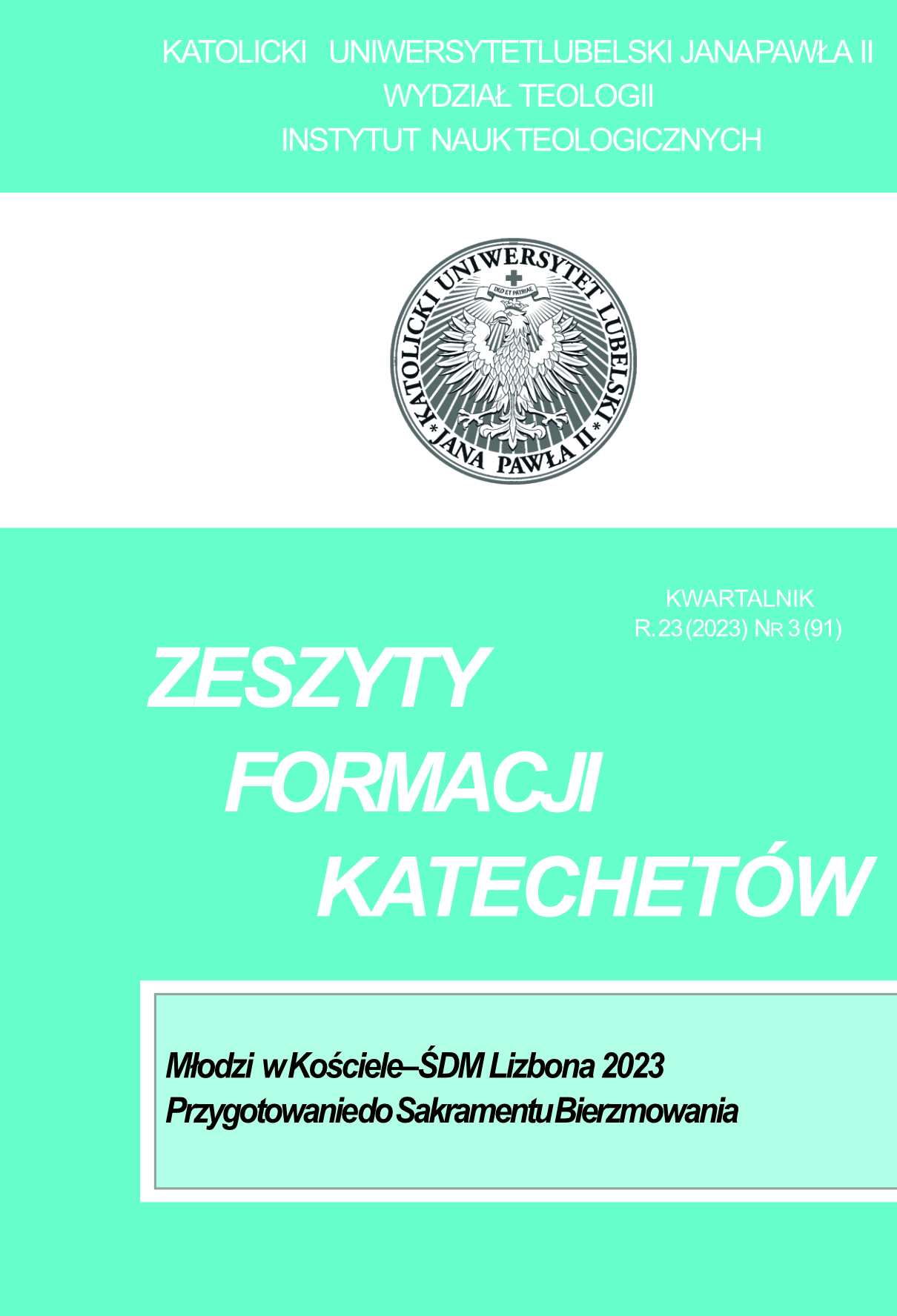Catholic teaching of religion vs. parents’ perceptions regarding adulthood of children on the autism spectrum
Keywords:
autism, religion, parents, religion teachersAbstract
Adopting the approach of inclusive education, the Ministry of Education and Science pays special attention to students with various disabilities in all core curricula for kindergartens and schools. In the 2022/2023 school year, changes have been introduced to the rules for the professional development of teachers, which also apply to Catholic religion teachers. Teachers are expected to acquire more knowledge and skills as well as commit themselves to working with children and young people with special educational needs. This study focuses on the area of special education pedagogy, which through scientific research helps us understand autism spectrum disorders, as well as aims to set a new perspective on adulthood for those affected. The research was conducted in 2022. Assessing parents’ perceptions of adulthood for children with autism spectrum disorders is of great importance for all teachers. It is a starting point for teaching and educational plans. It is also an important factor in supporting the integral development of the child. In the opinion of parents, Catholic religion teachers are to draw, on the one hand, on the sources of the Church’s catechesis and, on the other hand, to learn about current scientific research so that their mission is rooted in the concrete educational situation.
References
Kalinowska N., Wyobrażenia dorosłości dzieci ze spektrum autyzmu w opinii rodziców, Lublin 2022 [mps BKUL].
Kiciński A., Katecheza dorosłych w procesie budowania Kościoła dojrzałego, w: Katecheza dorosłych, red. K. Misiaszek, J. Stala, Tarnów 2009, s. 141-158. http://hdl.handle. net/20.500.12153/4236.
Kiciński A., Dorosły jako podmiot katechezy, w: Katecheza dorosłych we wspólnocie Kościoła, red. K. Misiaszek, Warszawa 2002, s. 417-428. http://hdl.handle.net/20.500.12153/4228.
Kiciński A., Autyzm. Osoby ze spektrum zaburzeń autystycznych i katecheza. „Katecheta” 59:2015 nr 12 s. 5-16.
Osoby ze spektrum autyzmu w biegu życia, red. A. Prokopiak, Lublin 2020.
Prokopiak A., Uczeń z zaburzeniami ze spektrum autyzmu na katechezie w szkole ogólnodostępnej, „Zeszyty Formacji Katechetów” 56 (4) (2014), s. 61-68.
Prokopiak A., Autyzm – przegląd definicji, etiologia, kryteria diagnostyczne, w: Autyzm i rodzina, red. A. Prokopiak, Z. Palak, Lublin 2017, s. 15-40.
Prokopiak A., Autonomia osób ze spektrum autyzmu. Predyktory psychospołeczne, Lublin 2020.
Rozporządzenie Ministra Edukacji i Nauki z dnia 25 sierpnia 2022 r. w sprawie oceny pracy nauczyciela, Dz.U. 2022 poz. 1822.
Rybakowski F., Chojnicka I., Dziechciarz P., Horvath A., Znaczenie czynników genetycznych oraz przed- i okołoporodowych w etiologii zaburzeń ze spektrum autyzmu – wskazania do konsultacji genetycznej, „Psychiatria Polska” 2016, nr 50(3), s. 547-548.
Stypuła A., Psychologiczne aspekty dojrzewania i wczesnej dorosłości osób z zaburzeniami ze spektrum autyzmu, w: Wsparcie młodzieży i dorosłych z zaburzeniami ze spektrum autyzmu. Teoria i praktyka, red. K. Patyk, M. Panasiuk, Sopot 2017, s. 25-48.
Downloads
Published
How to Cite
Issue
Section
License
Copyright (c) 2023 The Journals of Catechetical Formation

This work is licensed under a Creative Commons Attribution-NonCommercial-NoDerivatives 4.0 International License.

